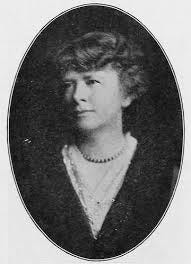What makes Pollyanna special? (III)
After 110 years, she still inspires gladness and stirs speculation
Pollyanna is special and was from the start. A phenomenal best-seller that appealed as much to grownups as to children, it provoked a range of reactions from reverence to ridicule.
In Part One “What Eleanor Porter left out?” we contrasted Pollyanna to Eleanor’s other novels, most of which reflect the Social Gospel. We suggest that Pollyanna is grounded in a Gospel of “personal sins,” and, instead of calling to fix society, Eleanor Porter invites us to play the Glad Game and fix ourselves.
In Part Two “Why the Glad Game is not the 'Happy' Game,” we see gladness depends on gratitude and optimism. Also, that optimism is different from faith.
Part Three, the final installment of What Makes Pollyanna Special, looks at how “sugary, sentimental”Pollyanna provokes serious consideration from ecclesiastics and academics.
“The greatest sermon ever written.”
This clipping (probably a press release) — comes from the Cambridge Tribune Saturday, December 13, 1913. Eleanor Porter is invited to offer a message at a church. The unnamed pastor is quoted as saying EHP had “given to the world a great missionary story.”
The Glad Book.
Some months ago, when "Pollyanna, the Glad Book,"had yet to make her way, an enthusiastic critic wrote: "The Glad Book is the greatest sermon ever written." This was, indeed, a sweeping statement, but the truth of It has been proven many times since. [PORTION CONTINUED BELOW]
Pollyanna Glad Sundays have been arranged In churches all over the country, when the pastor has given over his sermon to Pollyanna and her wonderful glad game. But only recently the author herself, Mrs. Eleanor H. Porter, was given the opportunity to spread Pollyanna's "gospel of gladness," when, at the invitation of the pastor of the First Baptist Church, Salem, Mass., she occupied the pulpit at a Sunday service.
Surpassing Worth – Pollyanna’s Glad Game and Troubled Times
One hundred and three years after the above sermon (Oct. 8, 2017), — Rev. Dr. Arthur M. Suggs delivered his sermon, SURPASSING WORTH “The Glad Game is to Banish the Mopes from a Positive Attitude.”
It is summarized by UCC cleric Jamie Waters:
“In this sermon, Pastor Art speaks of the story of Pollyanna and her “Glad Game,” and where a positive attitude fits in when particularly horrible events occur in our society. He says, “In our culture, being labeled Pollyanna or Pollyanna-ish is actually an insult. It means that you’re unrealistically positive , and that’s what I’m wrestling with today.”
“I have an extremely high view of humanity, as you all know: Made in the image of God; children of God; the kingdom of heaven within us — all these kinds of good things.”
“Am I being Pollyanna-ish? That’s for you to decide.”
“The Ambiguous Heteronormativity of Pollyanna”
Pollyanna portrayed a fictional slice of America at a given moment. It is a reminder of the nation’s innocence and optimism, but also describes the roles that society expected women to play. That makes it a good book for feminist researchers.
Laura M. Robinson is a prolific scholar of children’s literature and an authority on L.M. Montgomery (Anne of Green Gables). She contributed a chapter in Pollyanna: A Children’s Classic at 100 (2014) with the title “Aggressive Femininity: The Ambiguous Heteronormativity of Pollyanna,” which speculates about characters’ subconscious motives. Here is an abstract of that chapter from Oxford Academic:
This chapter draws on author Humphrey Carpenter's Secret Gardens: A Study of the Golden Age of Children's Literature to study Pollyanna as a character who displays an “aggressive femininity,” suggesting that girls like her perform femininity to a degree that reveals the constructedness of their very gender. Pollyanna both purveys and disrupts patriarchal ideology through simultaneous praising and critiquing of father figures, the family, and traditional marriage. By suggesting that these institutions and authorities are constructed—and therefore vulnerable—the novel allows a reassessment of traditional gender roles. Pollyanna becomes an agent for patriarchal authority by literally and figuratively repeating her father, and by restoring her aunt to heteronormativity.
What makes Pollyanna special? In Part III, above, we have seen how the book invites conversation. It engages the reader differently from a typical orphan saga. It raises questions for professors and pastors because, in a way, Pollyanna challenges them. After all, with none of their credentials or authority, she taught and inspired the entire population of Beldingsville!
Pollyanna is a little girl who shows, without help from preachers or teachers, that we can make ourselves glad. That is why Pollyanna and Eleanor Hodgman Porter will always be special to me.
Troubled Times
Pollyanna’s warm reception in 1914 was due to “troubled times” according to most sources. They often cite the beginning of the Great War causing American anxiety — overlooking that the fact that Eleanor had finished writing the book in 1913, and Archduke Ferdinand of Austria was assassinated in June 1914 , a year later, and, the US would not even enter the war until April 1917. So, what were Eleanor’s readers worried about in 1913?
All of Eleanor’s novels were “positive” and she deplored literature’s descent into muckraking and sensationalism. The Beldingsville Beacon will highlight the moral dilemmas and controversies that prevailed while she was writing.
Illustrations: Cambridge Tribune, Wikipedia and AZ Quote.
Copyright © Jim McIntosh 2025











